








|
|
Quick Access to my Ads and Patents
 |
Advertisements and Tools Catalog Literature
|
 |
United States Patents
 |
Patent No. 457,710 Dated Aug. 11, 1891
by Joseph F. Emmert for Emmert Mfg. Co. |
 |
Patent No. 709,399 Dated Sept. 16, 1902
by Joseph F. Emmert for Emmert Mfg. Co. |
 |
Patent No. 728,858 Dated May 26, 1903
by Edgar H. Byer for Emmert Mfg. Co. |
 |
Patent No. 787,328 Dated Apr. 11, 1905
by Joseph F. Emmert for Emmert Mfg. Co. |
 |
Patent No. 899,779 Dated Sept. 29,
1908
by Gilmore M. Yost for GM Yost Mfg. Co. |
 |
Patent No. 1,000,416 Dated Aug. 15, 1911
by Harry S. Kuhn for Emmert Mfg. Co. |
 |
Patent No. 1,000,417 Dated Aug. 15, 1911
by Harry S. Kuhn for Emmert Mfg. Co. |
 |
Patent No. 1,245,741 Dated Nov. 6, 1917
by Harry S. Kuhn for Emmert Mfg. Co. |
 |
Patent No. 1,298,145 Dated Mar.
25, 1919
by Gilmore M. Yost for Columbian Hardware. Co. |
 |
Patent No. 1,298,146 Dated Mar.
25, 1919
by Gilmore M. Yost for Columbian Hardware. Co. |
 |
Patent No. 1,310,351 Dated July 15, 1919
by Victor R. Koontz for Emmert Mfg. Co. |
 |
Patent No. 1,385,504 Dated July 26, 1921
by Freeman W. Stroh for _Unknown_ in
Barberton, OH |
|
|
|
There
are many photos, ads and patents on this page so please be patient as the page
loads. |
|
|

Advertisements and
Tool Catalog Literature

I've decided to make this
section similar to a time line. I thought that it would offer an
impression of
what life was like and what effects current events had on the people
then. Life was very different in the latter half of the 1800's. As you'll see
from the accident reports below, the writers seem to be more concerned
with the status of the equipment and factories than the workers
themselves. Working in a foundry was dangerous work. |
1845 Joseph F. Emmert was
born.
I have not been able to determine the
day or city in which he was born.
|
1861-1865 Civil War -
Waynesboro, Franklin County, PA
During the Civil War,
Waynesboro remained relatively unscathed while its less fortunate
neighbor to the west, Chambersburg, was set fire, and its neighbor to
the east, Gettysburg was the site of the famous three-day battle,
proclaimed to be the turning point of the war. Waynesboro was, however,
occupied by the Confederates twice during the war. Both occupations were
during 1863, the first shortly after the burning of Chambersburg.
Imposing military rule, the Confederates burned the newspaper office
because of the printing of Union recruiting material. Towns folk were
forced to provide supplies to the soldiers; the majority of the women
spent most of the occupation baking bread for the enemy soldiers. After
15 days of Rebel rule, Waynesboro was granted a reprieve while its
residents either fled north toward Harrisburg or took measures to ensure
the safety of valuables by burying them to protect against another
Confederate raid. Those who stayed in Waynesboro soon were subjected to
yet another occupation, although this time the Confederates were just
&passing through on their way to Gettysburg to meet General Mead in
battle.
courtesy of the Greater Waynesboro
Chamber of Commerce
http://www.waynesboro.org/beginnings.html
|
1863 Civil War -
Battle of Gettysburg, PA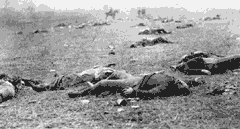
July
1-3, 1863. Joseph Emmert was 18 years old. Gettysburg is only 24 miles
from Waynesboro.
I have not been able to determine if he
served in the war.
|
|

1865
After the war was over, it
was life as usual in Waynesboro; its residents digging up their buried
valuables and turning their attention from war to work. Prior to the
war, the majority of people in the area made their living by farming,
but the tide soon turned to industry with entrepreneurs such as George
Frick and A. B. Landis setting up shop in Waynesboro.
courtesy of the Greater Waynesboro
Chamber of Commerce
http://www.waynesboro.org/beginnings.html
|
1875
Emmert Genealogy
My research
has not turned up much on Joseph F Emmert or the Emmert Manufacturing
Company, but I will keep looking.
Joseph F Emmert
married
Anna Eliza Benedict, daughter of Jacob Benedict and Susannah
Wilt. She was born 26 APR 1844 in Waynesboro, Franklin Co., PA, and died
1929. Joseph and Anna had 4 children.
Jesse Benedict Emmert was born 11 OCT 1873 in Waynesboro, Franklin
Co., PA, and died 1928.
Edith G Emmert was born 10 AUG 1875 in Waynesboro, Franklin Co., PA.
Harvey D Emmert was born 21 SEP 1877 in Altoona, Blair Co., PA.
Sudie M Emmert was born 21 MAY 1880 in Waynesboro, Franklin Co., PA.
courtesy of the Ancestry.com
http://www.ancestry.com
|
1876 Alexander Graham Bell
demonstrates the first telephone apparatus.
|
1889 The Eiffel Tower
was
displayed at the Paris World Fair
in 1889.
|
1890 Article from The Iron Age - Country's Wealth
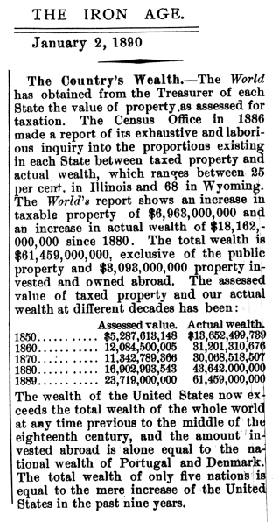 In 1980, IBM gave Bill Gates and Microsoft the contract to develop
the software for their first PC. In 1999 Forbes estimated Bill Gates’
net worth at $85 billion. That is more than the whole Untied States had
in 1890. By 1990 one man had more money than the whole United States had one
hundred years earlier. In 1980, IBM gave Bill Gates and Microsoft the contract to develop
the software for their first PC. In 1999 Forbes estimated Bill Gates’
net worth at $85 billion. That is more than the whole Untied States had
in 1890. By 1990 one man had more money than the whole United States had one
hundred years earlier.
|
1890 Article from The Iron Age - Accidents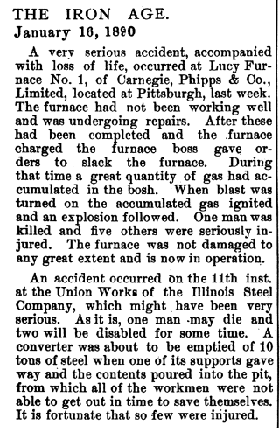
Blast furnaces, foundries, rolling mills, and
machine shops sprang up all over Pennsylvania. Mill and mine owners
often built cramped housing near the mills and mines, called "company
houses," and rented them to their workers. It was an effective method of
job security, since a worker would be less likely to quit his job if it
also meant he'd lose his home in the deal. Work conditions were often
hazardous and there was no compensation in case of death or injury.
|
1890 Coke Oven Workers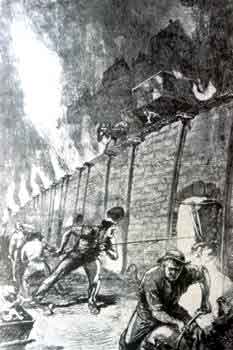
Coke workers stoke beehive coke ovens, which were
built into the hills near coal mines. Coke is a purified form of coal
that was necessary to make steel and cast iron. |
| |
March
16, 1891 Joseph F. Emmert
filed a patent for his patternmakers
vise.
April 22, 1891 - Pittsburgh Pirates
played their first
game.
|
|
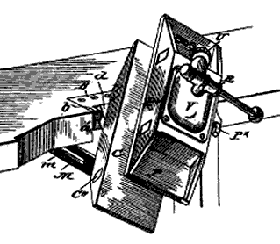 The
soon to be famous Emmert patternmakers vise is now a patented vise. The
soon to be famous Emmert patternmakers vise is now a patented vise. |
|
|
1893 Chicago World Fair
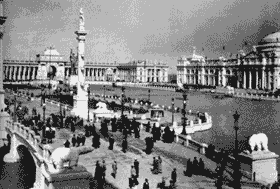
|
|
|
1901
Article from The Iron Age
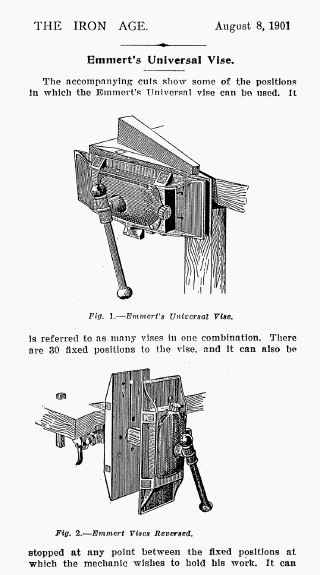
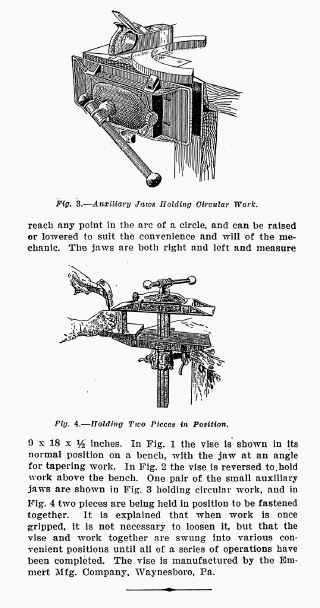 |
|
by Edgar Byer, assignor to the Emmert Mfg. Co.
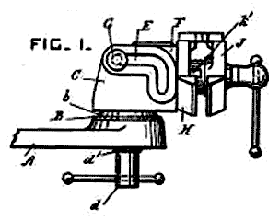 |
Dec 17, 1903 Wilbur and Orville Wright
made the world's first sustained,
powered, and controlled flight in a heavier-than-air flying machine,
thereby realizing one of mankind's oldest and most persistent
aspirations -- human flight.
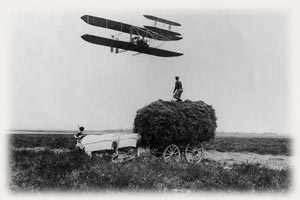
|
June
4, 1904 Joseph F. Emmert
filed a second patent for his
patternmakers vise.
|
August
30, 1904 Mortimer G. Lewis
is the author of many vise patents.
This one is for a bench vise was assigned to the Emmert Mfg. Co.
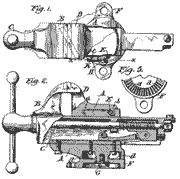
|
|
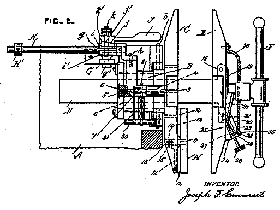 |
1906
Joseph F. Emmert died at the age of 61.
|
1906 Panama Canal under
construction.
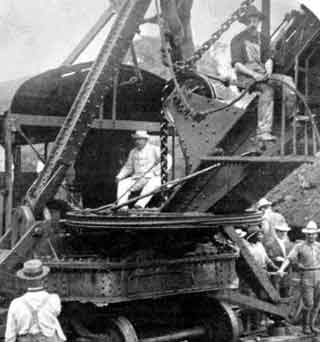
|
|
by Harry S. Kuhn of Waynesboro, Pennsylvania..
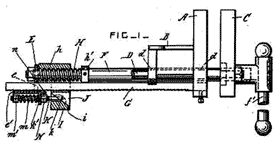
|
|
by Harry S. Kuhn of Waynesboro, Pennsylvania.
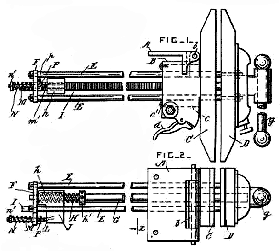
|
1912 American Machinist Ad for Emmert Machinist Vise
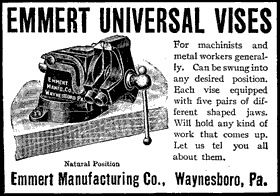
|
1913 Machinist Vise from Pittsburgh Gage and Supply Catalog
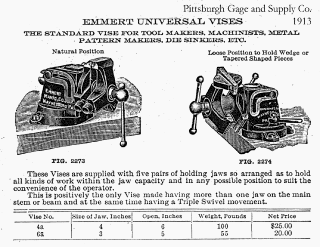 |
1913 Patternmakers Vise from Pittsburgh Gage and Supply Catalog
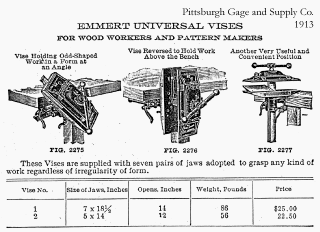 |
|
|
1914 - 1918 World War I
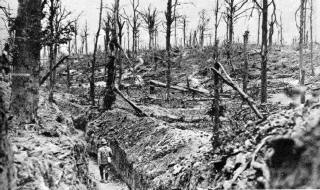
|
February 6, 1918 Victor R. Koontz
filed for a patent for his
patternmakers vise.
|
|
by Victor R. Koontz of Waynesboro, Pennsylvania.
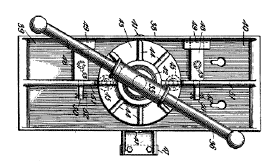
|
1920 Machinists Supply Co.
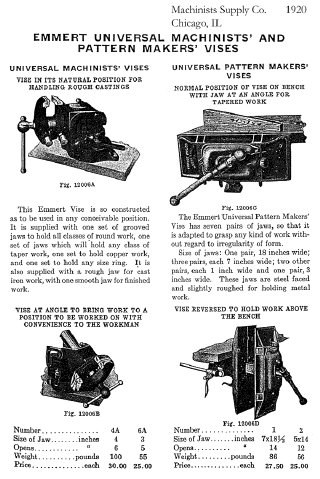
|
1920 Oliver No. 1 Universal Vise
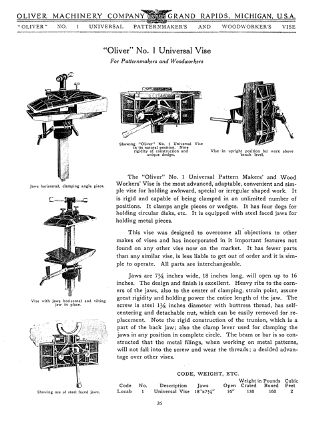 |
|
|
1920 Oliver Quick Acting and
Solid Nut Vises
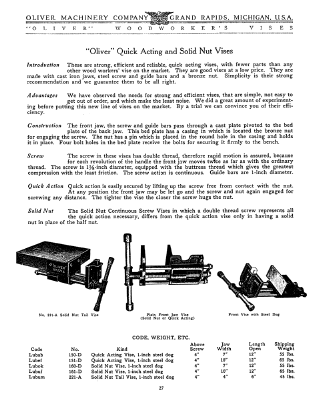
|
1925 National Supply Co. Columbian
Patternmakers Vise
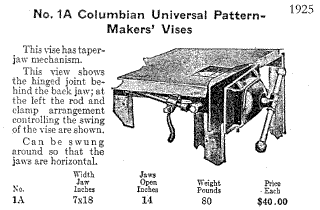
|
1925 National Supply Co. Columbian
Cabinet Makers Vise
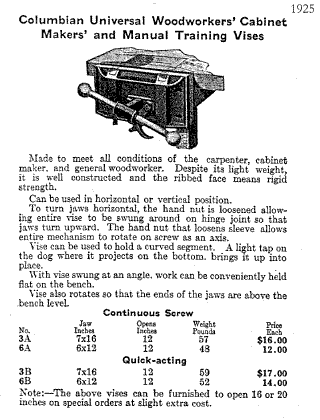 |
1927
New Improved Patternmakers from John Duer & Sons Catalog
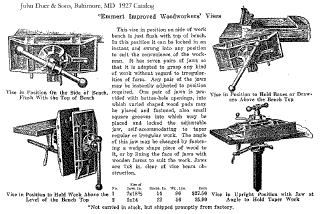
Above is a picture of the 1927 John Duer & Sons Tool Catalog.
It shows the Emmert vise in various positions. Very standard, right. But
look at the Emmert in the "Vise in Position to Hold Work Above the Level of
the Bench Top" (figure in lower left). What's different? (.... Do you remember comparing the drawings in the
Highlights kids magazine? ....) On this vise, the taper adjustment handle
is missing. Also the
vise dogs do not protrude the bottom of the front jaw. This is a drawing
of the Type
U1. You won't see many that look like this.
|
1930 Vonnegut Hardware Co. Patternmakers Vise
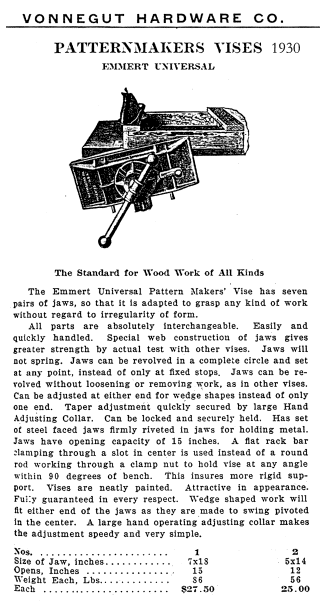
|
1930 Vonnegut Hardware Co. Machinists Vise
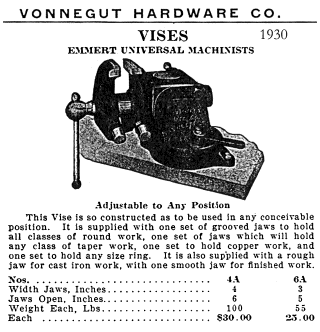 |
|
|
1934 Camp of Unemployed
- Great Depression
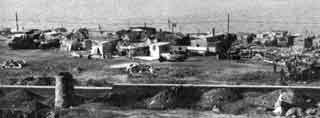
|
1936 Hoover Dam
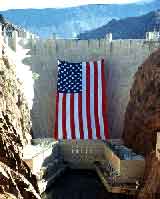
|
Sept. 13, 1940 Emmert Catalogs and Price
List
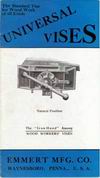 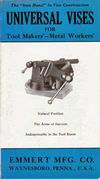 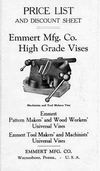
|
1941 - 1945 World War II
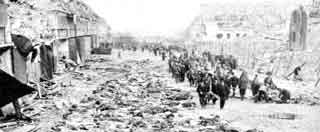 |
|
1946 McMaster Carr Supply
Co. A New Improved Universal Vise
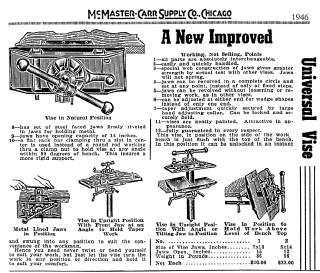
|
1946 McMaster Carr Supply
Co. Mead Patternmakers' Vise
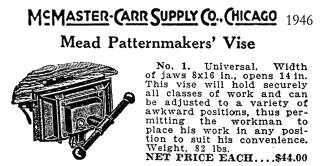
|
1950 Kindt-Collins Co. Emmert
Improved Universal Vises
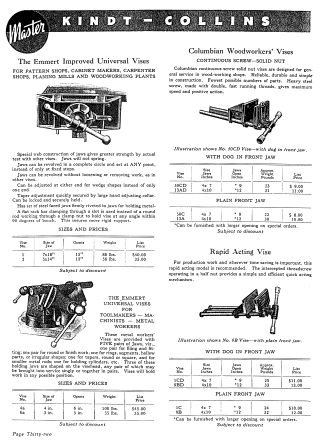 The
Universal vise pictured is a Type U2
with the high fin collar and no vertical support between the vise dogs
and the collar. By 1950, the design had evolved to the
Type U5. The
Universal vise pictured is a Type U2
with the high fin collar and no vertical support between the vise dogs
and the collar. By 1950, the design had evolved to the
Type U5. |
1953 Suburban
Development
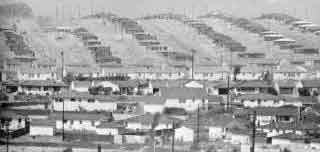 Suburban
Subdivision outside Los Angeles Suburban
Subdivision outside Los Angeles |
196? Advanced Technology Corp.
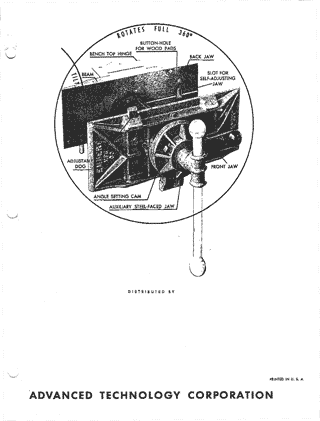
|
196?
A GRIP OF IRON
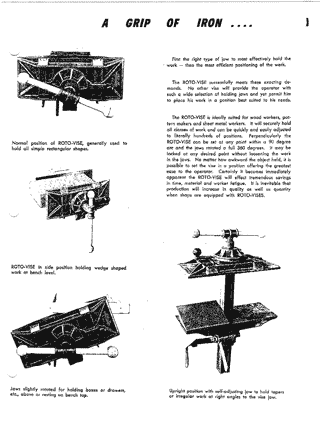
|
196? Installation Instructions
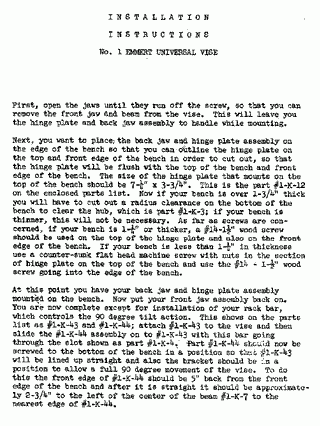
|
1969 Straube Mfg. Parts Prices
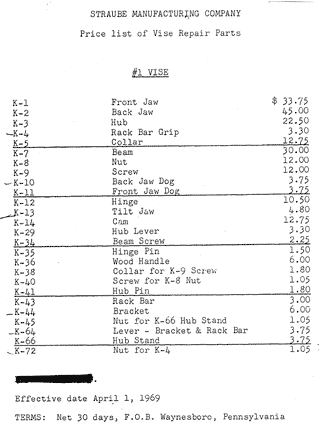
|
|
|
| |
|


 |
|
These documents are provided
courteously by the United States Patent Office. The Patent Office is
located at http://patft.uspto.gov.
The
United States began granting patents to inventors in 1790 and were known
as Name and Date Patents until mid 1836 when Patent Numbers began to be
issued. On December 15, 1836 all patent records were lost when the U. S.
Patent Office was destroyed by fire. However, great efforts were made to
restore the records and of the 9,957 unnumbered patents, the text of about
2,700 have been restored.
|
Patent 457,710
Dated Aug. 11, 1891 by Joseph F. Emmert
To see the official content
as published by USPTO, go to
http://patft.uspto.gov/netacgi/nph-Parser?patentnumber=457710 and
click on the Images button.
Notice the jaw insert in Fig.
1. Also notice the tilt adjustment bar in Fig. 2&3. This would
indicate that the
flat slotted bar dates back to Aug 11, 1891, before round bar shown in
Patent 787328.
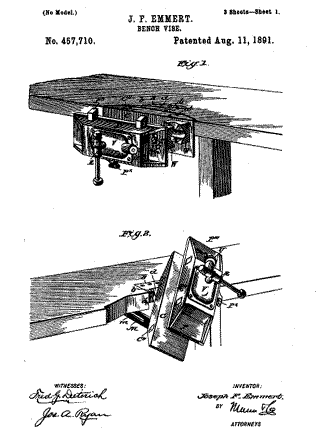
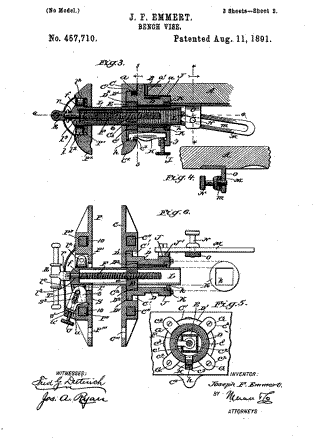
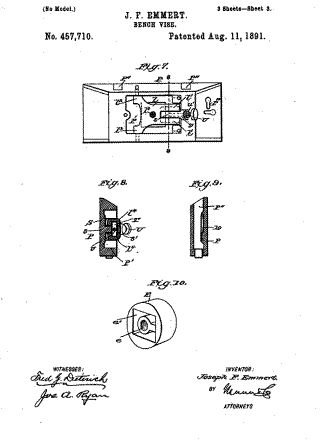
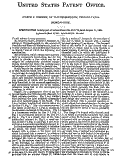 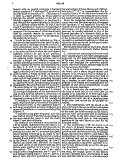 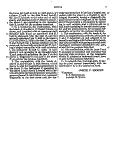
|
Patent 709,399
Dated Sept. 16, 1902 by Joseph F. Emmert
To see the official content
as published by USPTO, go to
http://patft.uspto.gov/netacgi/nph-Parser?patentnumber=709399 and
click on the Images button.
This Emmert invention is for
use on a drill press and looks similar to the Model 4a.
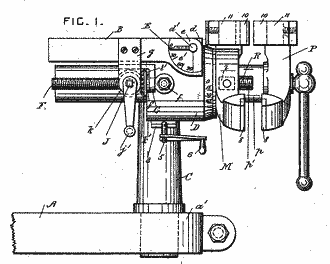
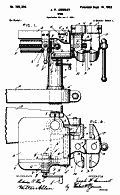 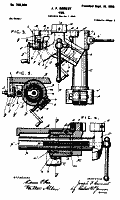 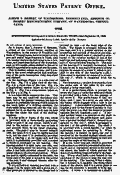 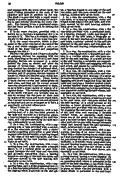 
|
Patent 728,858
Dated May 26, 1903 by Edgar Byer, assignor to the Emmert Mfg. Co.
To see the
official content as published by USPTO, go to
http://patft.uspto.gov/netacgi/nph-Parser?patentnumber=728858 and
click on the Images button.
This is the patent for
Model 4a. In Fig. 1 and 3 the mount
is a single bolt thru the bench. Most examples show 3 bolts mounting in
a circular pattern. Also notice that one of the Witnesses on page 3 was
G. M. Yost. I've heard that Yost was a foreman at Emmert Mfg. Co. and
later started his own vise company, GM Yost Mfg. Co.
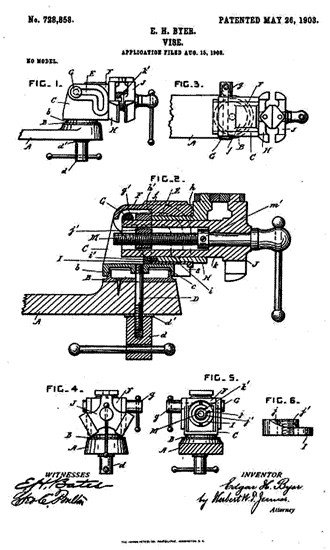
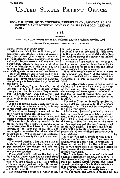 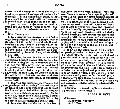
|
Patent 768,810
Dated Aug. 30, 1904 by Mortimer G. Lewis
To see the
official content as published by USPTO, go to
http://patft.uspto.gov/netacgi/nph-Parser?patentnumber=768810 and
click on the Images button.

|
Patent 787,328
Dated Apr. 11, 1905 by Joseph F. Emmert
To see the
official content as published by USPTO, go to
http://patft.uspto.gov/netacgi/nph-Parser?patentnumber=787328 and
click on the Images button.
In Fig. 1, look
at the size of the hinged mounting angle. In Fig. 2, notice the round bar tilt
adjustment, labeled H. Also look at the stop on the end of the tilt
adjustment bar, labeled H'. How many of these have you seen?

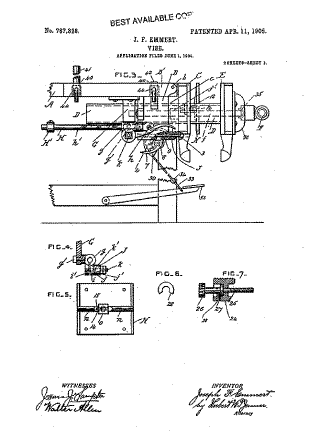
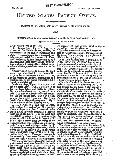 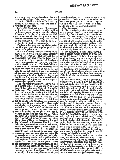 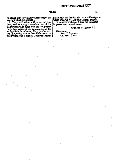
|
Patent 1,000,416
Dated Aug. 15, 1911 by Harry S. Kuhn
To see the
official content as published by USPTO, go to
http://patft.uspto.gov/netacgi/nph-Parser?patentnumber=1000416 and
click on the Images button.
This is the patent for the
Model 130. The spring at the end of
the screw (m & m') are a neat design. If you over tighten the vise then
the spring tension lets the nut move closer to the jaw. This prevents breaking
something.

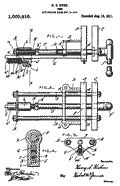 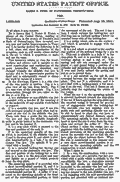 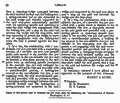
|
Patent 1,000,417 Dated Aug. 15, 1911 by
Harry S. Kuhn
To see the
official content as published by USPTO, go to
http://patft.uspto.gov/netacgi/nph-Parser?patentnumber=1000417 and
click on the Images button.
I'm not sure which model of vise this one is. It's
called a Turret Vise in the patent. It
has a hinge mounting plate, a rotating hub, and a turtleback-like cover. The
spring at the end of the screw (N & n') is a nice addition. If you over
tighten the vise then the spring tension lets the nut move closer to the
jaw.
This prevents breaking something.
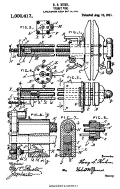 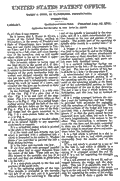 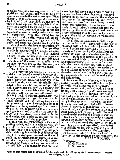
|
Patent 1,245,741
Dated Nov. 6, 1917 by Harry S. Kuhn
To see the
official content as published by USPTO, go to
http://patft.uspto.gov/netacgi/nph-Parser?patentnumber=1245741 and
click on the Images button.
This is the patent for a Universal Base for Pipe
Vises. If you know what the rest of the vise looks like, please let me
know.
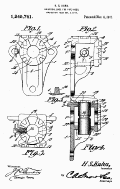 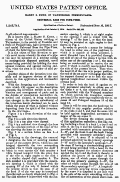 
|
Patent 1,310,351
Dated July 15, 1919 by Victor R. Koontz
To see the
official content as published by USPTO, go to
http://patft.uspto.gov/netacgi/nph-Parser?patentnumber=1310351 and
click on the Images button.
This is the patent for a "New Improved" Universal
Vise. This is similar to the Type U1
vise. Notice that it is missing the cam for the taper adjustment. The
patent does show taper adjustment by loosening the collar and adjusting
the jaw. The vise dogs do not extend thru the bottom of the jaw. This
makes it more difficult to raise the vise dogs for use. Also
missing is the vertical stiffeners adjacent to the dogs.
 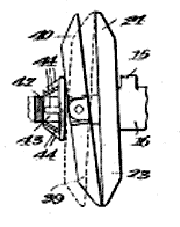
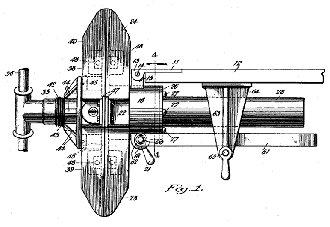
 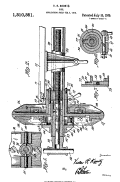 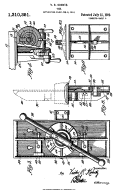
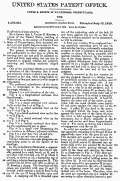 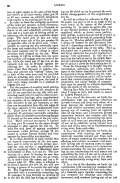 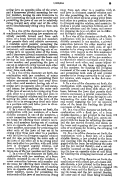
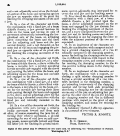
|
Patent 1,385,504
Dated July 21, 1921 by Freeman W. Stroh
To see the
official content as published by USPTO, go to
http://patft.uspto.gov/netacgi/nph-Parser?patentnumber=1385504 and
click on the Images button.
This is the patent for a Universal
vise. It was patented by Freeman Stroh of Barberton, Ohio. I'm not sure
which manufacturer it belongs to or if it was ever made. If you know
then please clue me in.
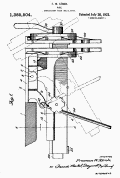 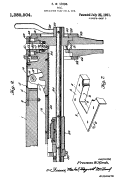 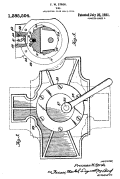 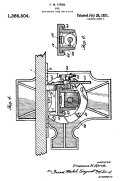
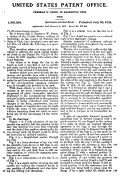 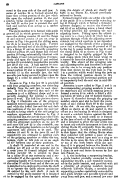  |
| |
| |
|


![]()